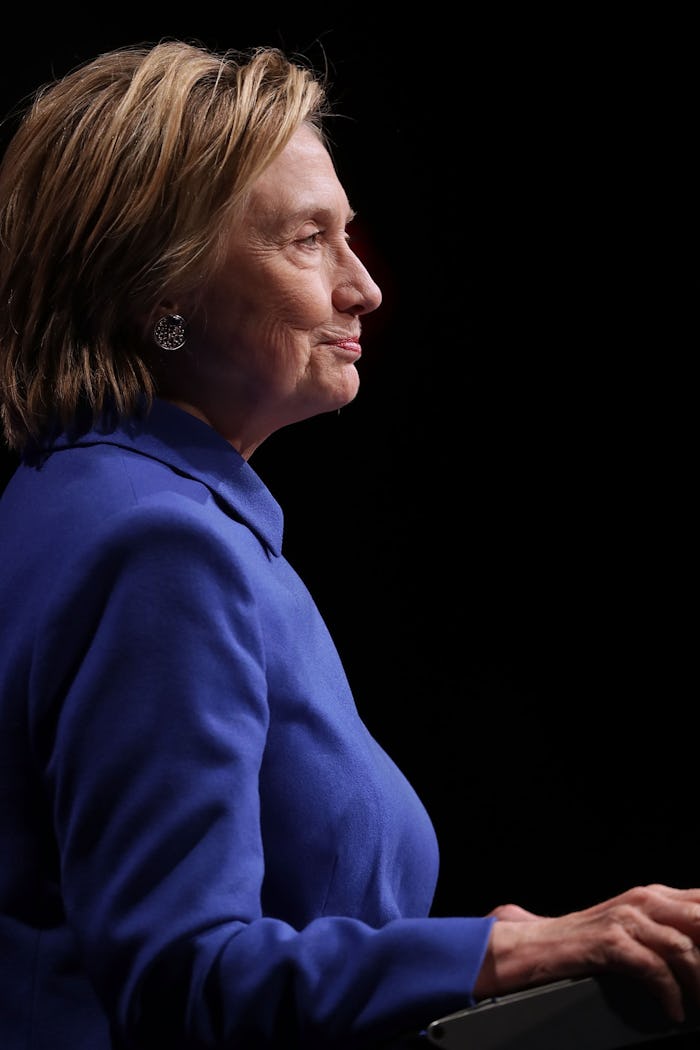News

Will Hillary Clinton Be 'Time's' Person Of The Year? An Announcement Is Imminent
Time magazine will be making its widely-anticipated announcement on Wednesday regarding the person (or the group of people) who have most influenced the news cycle this past year. Will Hillary Clinton be Time's person of the year? Will Donald Trump? Or will it be someone else altogether? The editors of Time will make the final decision, but poll results show an interesting match-up between Indian Prime Minister Narendra Modi and the former secretary of state.
On Monday, Time announced the 11 people who have been short-listed for the award. Unsurprisingly, both Clinton and president-elect Trump are on the list. Also listed are Russian President Vladimir Putin, Olympian gymnast Simone Biles, and English parliamentarian Nigel Farage. The other contenders are Mark Zuckerberg, Turkish President Recep Tayyip Erdoğan, Beyoncé Knowles, Narendra Modi, the CRISPR scientists (they developed technology for editing DNA), and the Flint, Michigan lead-poisoning whistleblowers.
Among this group, it's unclear where Clinton stands. The qualification for the Person of the Year is not what people might think. The award does not go to the best person of the year, nor to the most popular. In the words of the magazine's editors, the award is for "the person or persons who most affected the news and our lives, for good or ill, and embodied what was important about the year."
The "for good or ill" part is key; Indeed, in past years the distinction was granted to such widely-hated people as Adolf Hitler and Joseph Stalin. In 1979, American readers protested after Ayatollah Khomeini, the leader of the Iranian Revolution of that same year, was named Man of the Year. So it seems plausible that the more controversial names on the list, including Trump, Putin, and Erdoğan, might be selected. In the case of Trump especially, Time's emphasis on the person who "most affected the news" seems especially apropos for a politician who has arguably redefined the contemporary news landscape, at least in the United States.
In a match-up between Clinton and Trump, it seems nearly impossible to disentangle which candidate most drove the news cycle, and which candidate the news cycle drove. Time's stated parameter of the person who "most affected the news cycle" seems to imply that the person affects the news — not that the news, in turn, affects the person. It remains an open question whether constant coverage of Trump during the primaries led to his nomination. A Harvard study found that among the Republican primary contenders, Trump earned by far the most coverage in the mainstream media, from the very early days of his campaign. Moreover, the same study found that because of Trump, the Republican primaries in general received far more news coverage than the Democratic primaries.
Meanwhile, Clinton most certainly "affected" the news cycle as well. And as Election Day neared, news coverage focused most often on so-called controversies related to Clinton's use of a private email server while secretary of state. A Media Matters for America study in the week leading up to the election showed that coverage of Clinton's emails received more mainstream media coverage than all Trump stories combined.
We won't know what Time's editors decide until Wednesday, but we already know what Time's readers think: Prime Minister Modi handily won the Time online reader's poll, taking in 18 percent of the votes. By comparison, Clinton received only 4 percent of the votes, and Trump received 7 percent. Unsurprisingly, most votes for Modi came from Indian voters. A poll taken by NBC's Today suggests an entirely different result. The online poll has Clinton leading the pack with 56 percent of nearly 40,000 votes.
Whatever is decided on Wednesday, the results of this particular contest seem inconsequential compared to Trump and Clinton's other match-ups this year.